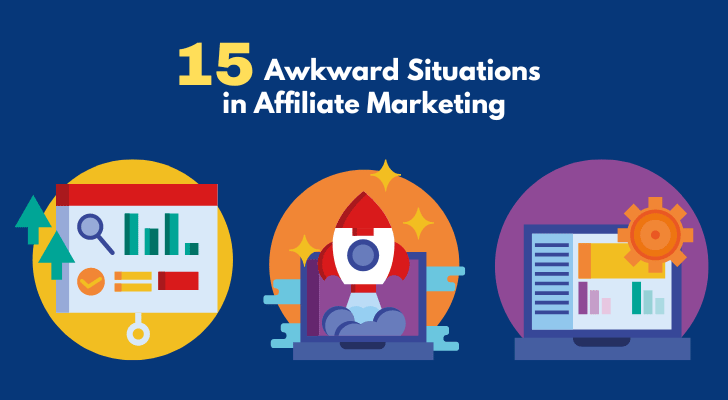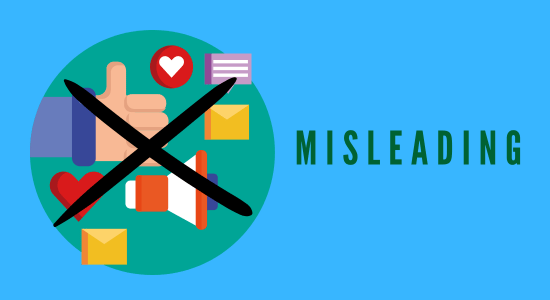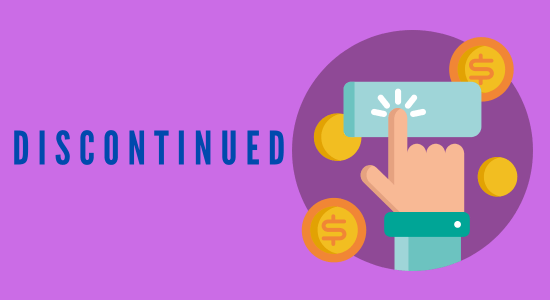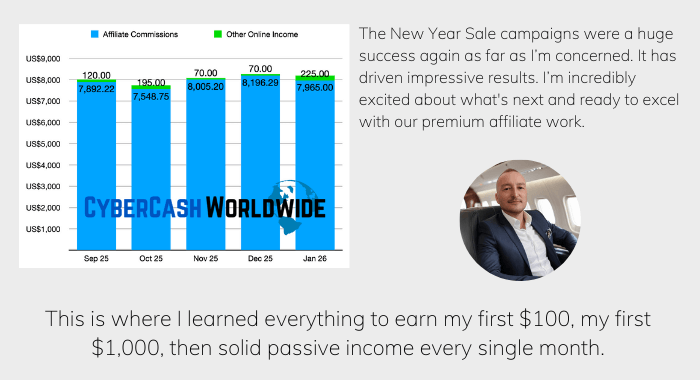We all know that affiliate marketing is an over-hyped business model. So it’s best not to expect much and promote whatever we can discreetly. But still, we experience cringe-worthy moments and feel stupid every now and again.

#1 Promoting Low-Quality Products
My own experience. I once found a new brand that had a really enticing commission structure. The product was a new fitness gear that they claimed was set to revolutionize the market. The product demos and customer testimonials they shared were impressive, so I signed up for the program, started promoting it, and sold a few.
But soon I started receiving messages from people saying it had broken, the battery didn’t last for a few hours, etc. expressing their dissatisfaction. This situation was against everything I stood for as a content creator and marketer.
I contacted the brand, and after a series of discussions, I stopped promoting their product. I explained to those who contacted me that I had acted in good faith based on the information available to me at the time.
So yes, promoting low-quality products can put you in awkward situations. If you are conscious about your "reputation", it's more so. You should maintain integrity and prioritize the interest of users over short-term gains. Although you know, you're just an affiliate marketer. Don't be embarrassed about things like that.
#2 Brand Scandal
Let's say you've been promoting particular dietary supplements. Users trust your recommendations and the affiliate partnership has been beneficial for both you and the brand.
One day, news breaks that this fitness brand has been involved in a scandal. Investigations reveal that they've been falsely advertising the ingredients in their dietary supplements, and some customers have suffered health issues as a result. The news spreads across media outlets and social media platforms, and the brand's reputation takes a severe hit.
Suddenly, users start questioning you - now they're wondering whether you knew about the false advertising, whether you're just as guilty as the brand.
This is an incredibly awkward and challenging situation to be in as an affiliate marketer. Not only do you have to deal with the financial impact of a damaged partnership, but you also have to handle the potential fallout with your audience.
You might need to sever ties with the brand and take this as a lesson to be more vigilant about the companies you affiliate with in the future.
I can say that this kind of scenario isn’t uncommon. Real-life examples include situations where brands have been exposed to unethical practices, false advertising, poor labor conditions, environmental negligence, and more.
#3 Misleading Product Descriptions

So, there was this time when I teamed up with a company that sold organic skincare products. The brand had a reputation for being environmentally friendly, which resonated with me and my subscribers, and their products seemed top-notch according to the descriptions and benefits listed on their website. I sold a few and the buyers all seemed happy.
But one of them who happened to be a professional dermatologist said the product contained several non-organic ingredients that were not mentioned on the label or the website. It was awkward, and I felt responsible, so I reached out to the company to discuss the matter. It ended up being a long back-and-forth, and although they never admitted any wrongdoing, I decided to discontinue my association with them.
Since then, I've always tried to validate the information as much as I could, and where possible, seek expert opinions. Trust and transparency issues, after all.
#4 Violation of Disclosure Rules
This definitely leads to serious consequences, so we all have to be careful. Here are some examples:
Undisclosed paid promotion:
Imagine a lifestyle blogger who frequently posts about various products. In one post, they rave about a specific brand of kitchen appliances, prompting many of their followers to purchase those products. Later, it is discovered that the blogger was part of that brand's affiliate program but did not disclose this information.
Users feel deceived, trust is damaged, and the blogger can also face legal implications as it violates the FTC's endorsement guidelines.
Paid reviews without disclosure:
Let's say a popular tech YouTuber uploads a video review for a new smartphone and praises it without revealing that the video is sponsored. The viewers, believing the review to be impartial, might buy the phone only to find out later that it doesn't meet their expectations.
When the sponsorship is revealed, it creates a sense of betrayal among the audience, so as you can imagine, the YouTuber's credibility could take a hit.
Cloaked affiliate links:
Some marketers may attempt to hide the fact that a link is an affiliate link by using URL shorteners or other methods to "cloak" the link. If a follower clicks on the link thinking it's just a recommendation and later discovers it was an affiliate link, it can lead to a feeling of mistrust.
False scarcity/urgency:
An influencer posts about a product, claiming it's on a "limited-time offer" or "almost out of stock" to create urgency. Later, followers discover that the promotion is regular, creating feelings of manipulation and leading to a breach of trust.
#5 Products Discontinued

I can definitely share a bit about this. My first affiliate marketing experience (years ago) was with a relatively new tech company, and one of the products was this smartwatch that had some truly unique features. I loved it, my visitors loved it, some bought it while others were asking me for more information.
Then all of a sudden I received an email from the company stating they had decided to discontinue the smartwatch due to some manufacturing issues. I had to scramble to remove or update all of the content.
What I didn’t have to do was apologize to my visitors for any inconvenience caused. I felt almost traumatized as if it was my fault the product was discontinued. I was naive, to be honest. It wasn’t my fault at all. These things happen.
All you have to do is diversify the products instead of relying on one affiliate product. So you won’t run out of your passive income.
#6 Payment Issues
Payment issues can be an awkwardness in affiliate marketing. For example;
Late Payments
You have driven a considerable amount of sales for a company over the month. You're eagerly awaiting your commission payment, but the expected date passes without any money arriving.
You follow up with the company but get delayed responses or vague promises of future payment. This can be both awkward and frustrating, impacting the working relationship between you and the company.
Discrepancies in Reported Sales
You’ve sold more than a few affiliate products so you expect a healthy commission, but the company's reports show far fewer sales. The company may blame technical glitches or return policies, but you can be left in an uncomfortable position, doubting whether the company is being truthful.
Lower Than Expected Commissions
You receive your payment, but it's lower than you expected based on your agreement with the company. The company might argue that some sales didn't qualify for commissions or that they had to adjust for returns and refunds. You start to wonder about the integrity of the company - are they telling you the truth? You never know, and that’s the thing.
Sudden Changes in Commission Structure
You’ve been working with a company for several months, getting used to its payment structure. Suddenly, the company announces changes to its commission rates or payment terms without sufficient notice. This is pretty demotivating, too.
#7 Changes in Affiliate Program Terms
Talking about the commission structure, changes in affiliate program terms can be annoying too. Here are a few scenarios:
Changes in Payment Schedule:
In another case, let's say you are part of a travel company's program which pays out commissions every 30 days. So you planned around this schedule. Suddenly, the company changes its payout schedule to every 60 days without adequate notice. This can disrupt your financial planning and create an uncomfortable situation.
New Product Exclusions:
Suppose you are a part of a popular online bookstore’s affiliate program, you review and recommend books on your blog. The bookstore suddenly changes its terms to exclude certain best-selling books from the program.
This forces you to either stop promoting these popular books or continue promoting them without earning any commission, both of which can be frustrating.
Alteration in Tracking Method:
Your affiliate company changes the method of tracking referrals without proper communication. For example, if a company switches from cookie-based to last-click tracking, it can impact the commissions you earn.
Introduction of Performance Thresholds:
An affiliate program may introduce new performance thresholds - such as a minimum number of sales or leads - that you need to meet to continue earning commissions. If you aren't able to meet these new targets, you could see your commission rates reduced or even have your accounts deactivated, leading to unexpected income loss.
#8 Intense Competition

The competition in affiliate marketing - that's a story we can all relate to, isn't it?
So, imagine you've found a product that aligns perfectly with your niche and you're excited to promote it. You pour your heart and soul into crafting content, publishing posts, and building an audience. You put in hours and hours of work, eagerly awaiting the results.
But you also know that a lot of other people are promoting the same product. Some of them are experienced well-established marketers with large followings and significant influence. Their content is more polished, their reach is wider, and they seem to be racking up sales while you're struggling to make your first one.
You start feeling like a small fish in a big pond, and it feels like no matter how much you try, you can't outshine these seasoned marketers.
It's indeed an awkward and frustrating situation. It can feel like you're shouting into a void, drowned out by the voices of those bigger, more experienced marketers. You might start doubting your abilities and questioning whether affiliate marketing is even worth the effort.
#9 Over-Promotion
Over-promotion in affiliate marketing can be a bit like that friend who talks too much about their latest obsession. At first, you're intrigued, then you start to get a little annoyed, and eventually, you might start avoiding the topic entirely.
Imagine, for a moment, you've found this fantastic product. It's high-quality, and the commission is great, so in your enthusiasm, you start mentioning the product in nearly every blog post, every social media update, and every newsletter. Your content, once diverse and engaging, begins to feel like a constant stream of advertisements for this one product.
Over-promoting - this is a surprisingly easy trap to fall into in affiliate marketing, and it can be a tough situation to navigate.
With that said, you don’t have to shy away from it though. It’s not like you had a particular group of “audience” - you’re not an influencer, you’re just an affiliate marketer. If you believe in the product, keep promoting it like a demon. This is a good-awkward situation!
If you believe in the product, keep promoting it like a demon. This is a good-awkward situation!
#10 Forgetting to Update Affiliate Links
This is a bit like inviting someone over to your house, but when they arrive, they find out you've moved without telling them the new address. You've done a great job convincing them to visit, but your directions lead them to an empty lot.
In the digital world, you'd have put a lot of effort into creating engaging content, enticing your audience to click on your affiliate link, only for them to encounter a 404 error or be directed to the wrong product.
Not only does this harm your credibility, but it also means you miss out on potential commissions. It's a rather embarrassing scenario, but it's a good reminder of the importance of regularly checking and updating your affiliate links.
#11 Overlooking Regional Differences
Imagine, you've watched an exciting streaming live on YouTube and you can't wait to discuss it with your friends. You rave about it, going into detail about the plot, the characters, and the twists, only for your friends to tell you they can't watch it because it's not available in their region.
That's the same disappointment users might feel if you promote a product that isn't available or differs in their region. It could be anything from a physical product that doesn't ship to their location, to a digital service that has geo-restrictions.
You’d better tell them in advance if a product is only available in certain countries of the world. So when they complain, you can at least say “As I previously explained…”
What Do You Advocate?
#12 Affiliate Program Shuts Down
You've spent months getting to know a friend, understanding their likes and dislikes, their quirks, their routines. You plan a surprise party for them, only to find out they've moved to another city. Something like that.
You've invested time and effort into understanding a product, creating amazing content around it and all, only for the company to suddenly shut down its affiliate program.
It's a sudden jolt, leaving you scrambling to adjust your strategy. It is a frustrating situation, but yeah, always diversify in affiliate marketing.
#13 Dealing with Negative Customer Experiences
Not just one but more than a few buyers who purchased your affiliate product come back to you, upset and disappointed, complaining about something - anything about the product.
You might feel that you're stuck in the middle, trying to make things right. That's similar to how it feels when a follower has a negative experience with a product you've promoted.
You might think it’s an awkward situation that tests your problem-solving skills. But you can tell them to get over it, sometimes. You cannot please everyone! Don’t forget, you’re just an affiliate marketer. You didn’t invent the product!
#14 Using the Same Content as Everyone Else
Imagine you've turned up at a party, feeling confident and unique in your carefully chosen outfit, only to find everyone else wearing the exact same thing. It's a bit embarrassing, right?
That's how it can feel when you use the same promotional content provided by the affiliate program as all the other affiliates. Your audience might begin to see the same images and text everywhere, making your promotions feel less genuine.
It's an awkward situation, but also a valuable lesson in the importance of creating unique, personalized content.
#15 Unexpected Product Changes
Let's say this company produces acclaimed video editing software. Very popular because of its user-friendly interface and features designed for beginners.
After working diligently to create tutorials, reviews, and promotional content for this software, you've managed to build a steady stream of referrals. People value your opinion and trust your guidance on using the software to its fullest potential.
Then, out of the blue, the company decides to roll out a massive update to the software. This isn't just a few new features or minor tweaks; they've overhauled the entire interface, removed some of the beloved beginner-friendly features, and added advanced functionalities that cater more to professional video editors.
It's an awkward situation to be in again. You either give up or if you want new commissions to keep rolling in, adapt quickly. Learn the new software, create new content to help users understand the changes, and seek out alternative software to recommend to those who are not satisfied with the new version.
15 Awkward Situations in Affiliate Marketing - Final Words
Do any of these situations matter to you? I hope not, because don’t forget, you’re just an affiliate marketer. You’re promoting third-party businesses on their behalf, think of yourself as a shop assistant. If you fail, you can always find new affiliate products and start all over again.



Good brief.